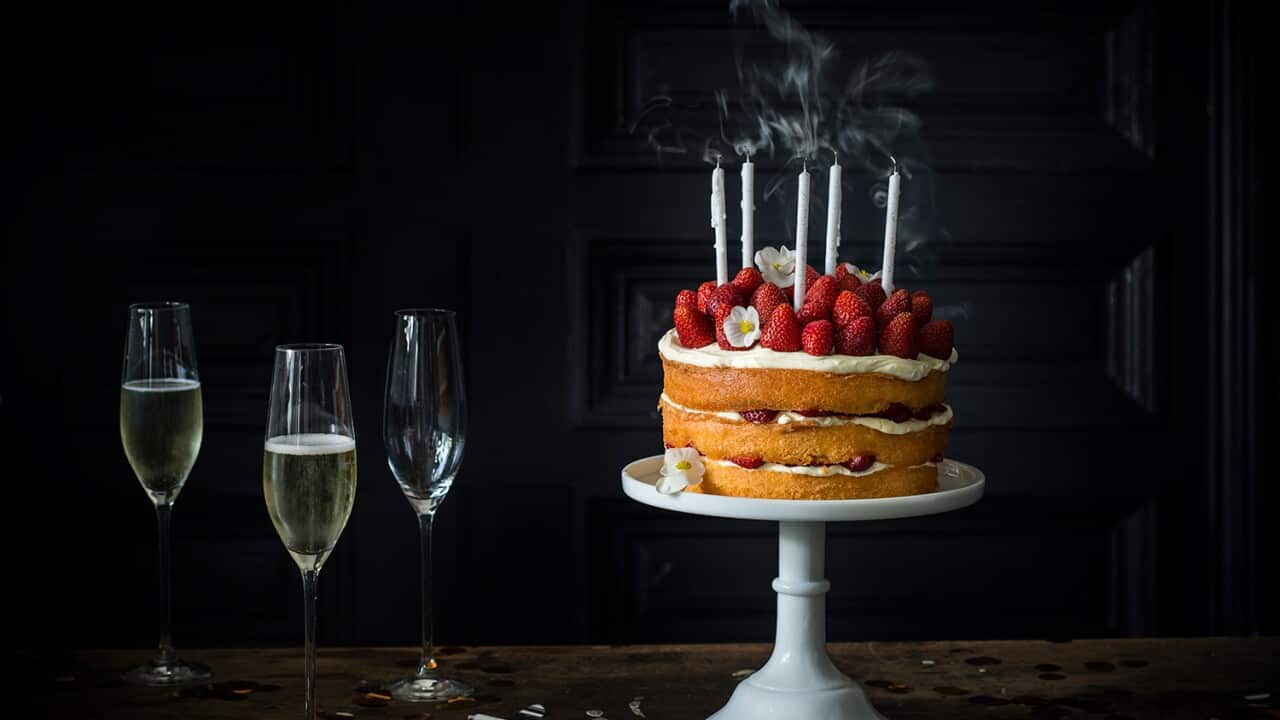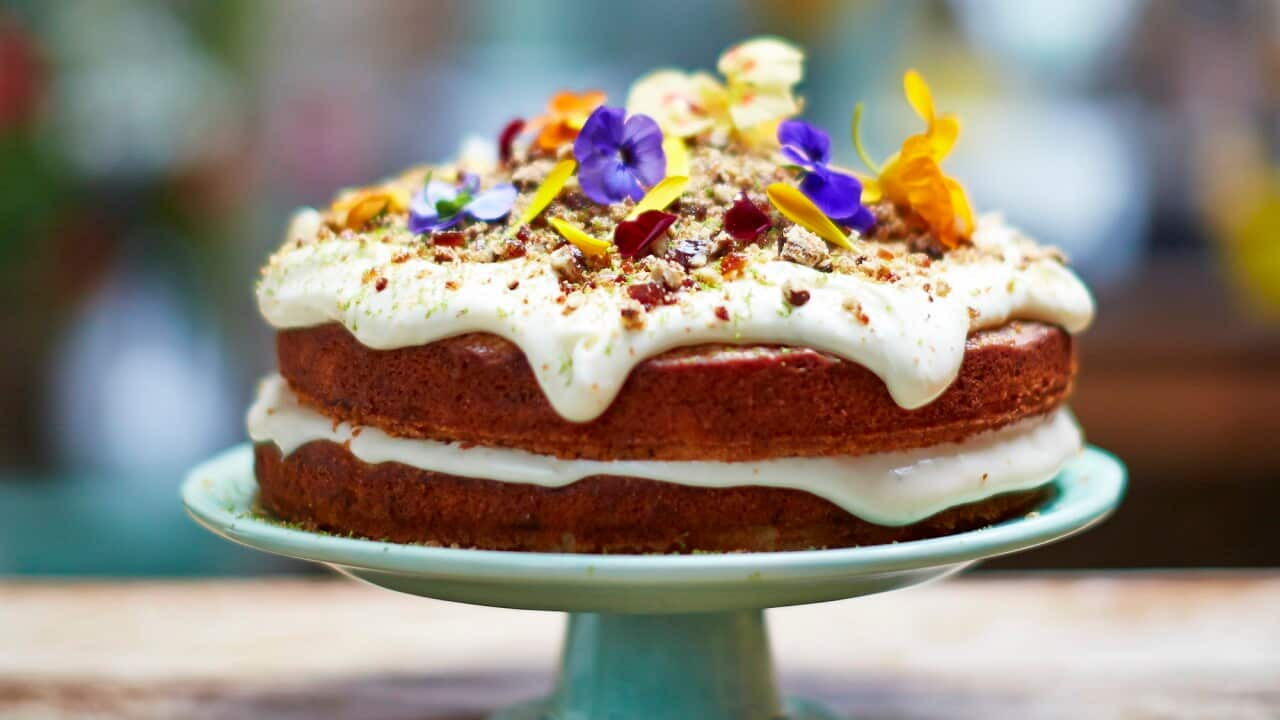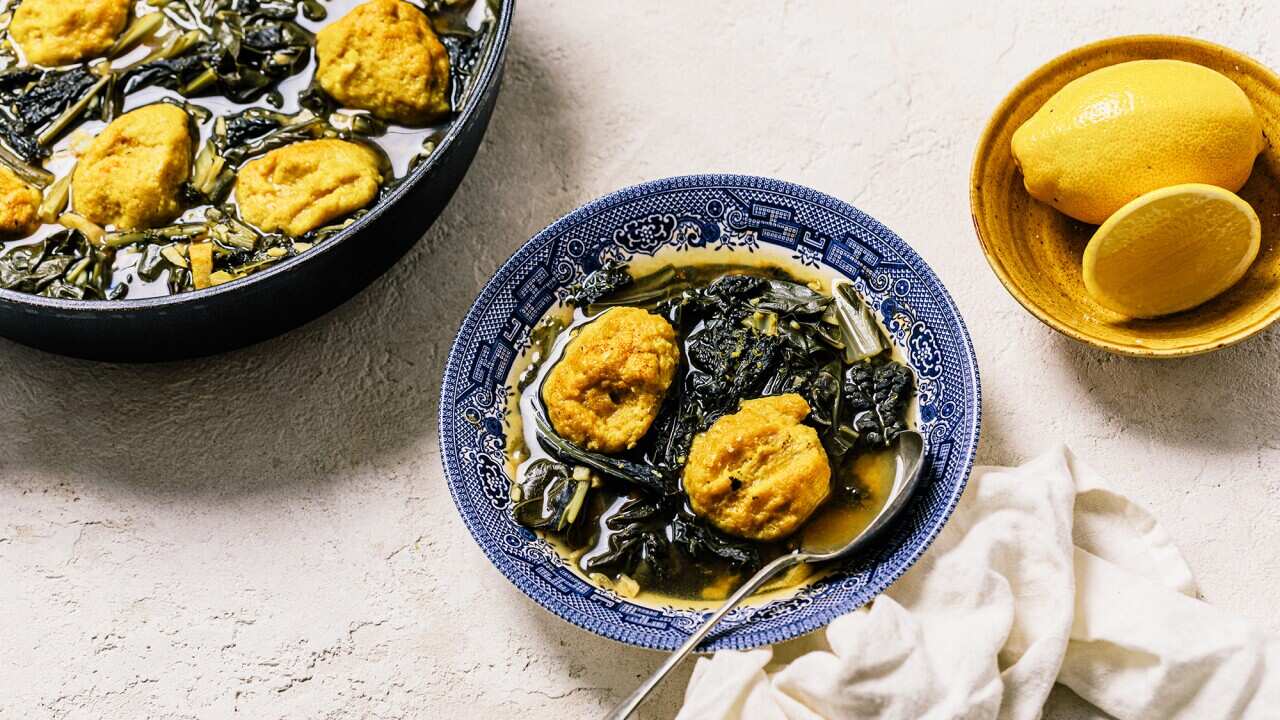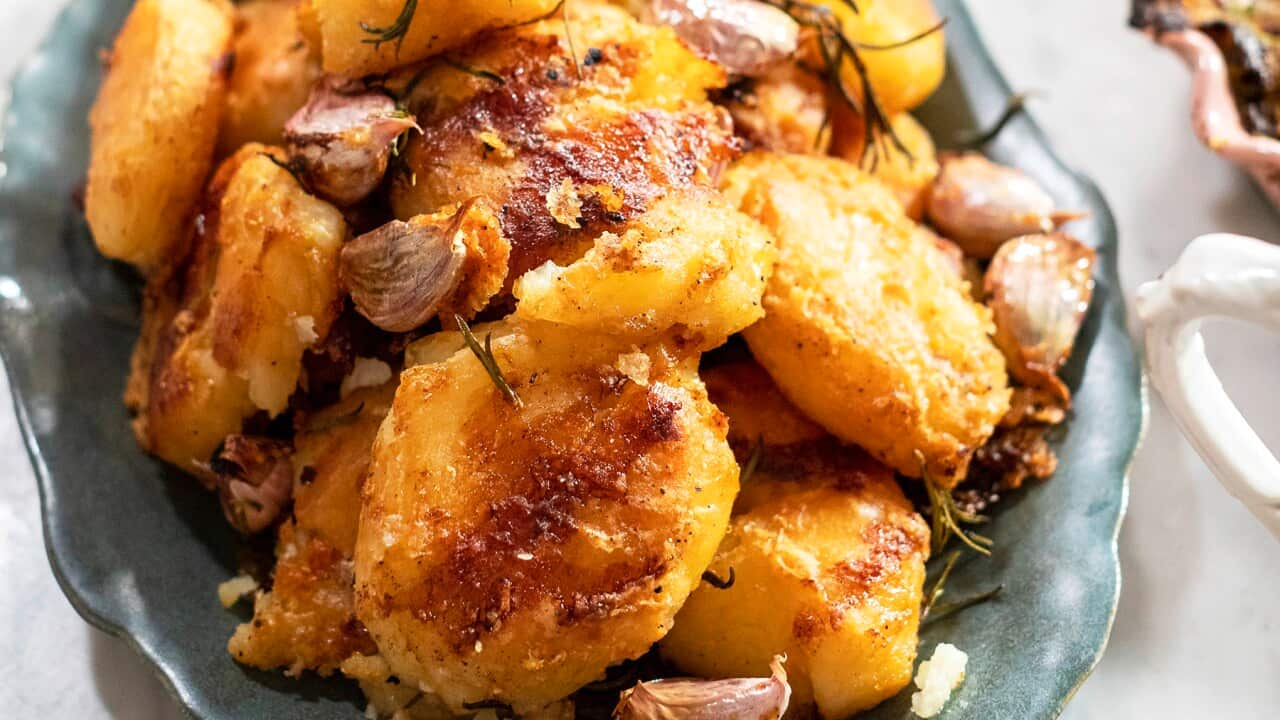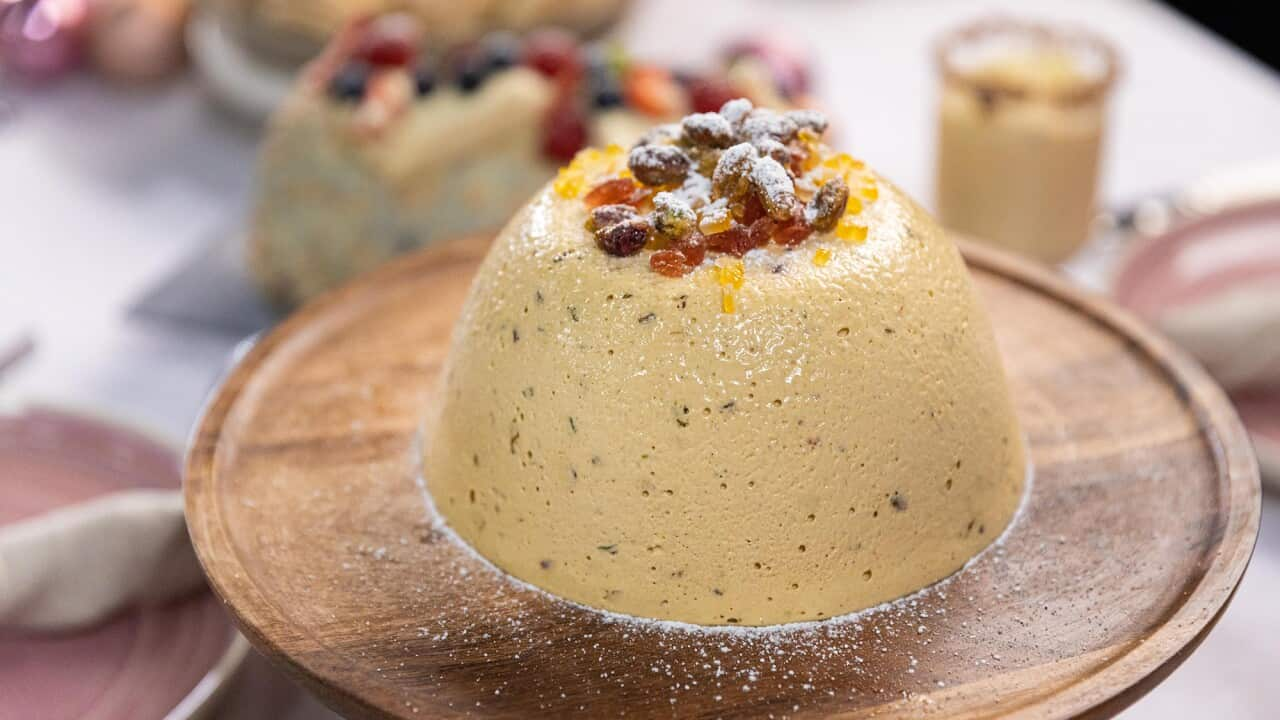serves
8-10
prep
40 minutes
cook
30 minutes
difficulty
Mid
serves
8-10
people
preparation
40
minutes
cooking
30
minutes
difficulty
Mid
level
How to cut a multi-layer sponge cake
Cakes with multiple layers, especially those made up of various textures such as sponge cakes, can be tricky to cut the traditional way – cutting downwards often squashes the cake, causing the softer filling to ooze unevenly out the side and leaving you with an unsightly mess.
The trick to avoid this, is to use a sharp serrated knife that has a pointed end and is at least the length of the height of the cake. Insert it into the centre of the cake vertically and use a gentle, slow sawing action to cut the cake. The layers will miraculously stay intact as each slice is cut and removed from the cake.
Insert it into the centre of the cake vertically and use a gentle, slow sawing action to cut the cake. The layers will miraculously stay intact as each slice is cut and removed from the cake.

The trick is to use a sharp, serrated knife, inserted vertically into the cake. Source: Undefined / Alan Benson

The layers will stay intact, without collapsing. Hurrah! Source: Undefined / Alan Benson
Ingredients
- 250 g ripe strawberries, hulled and sliced
- 500 g small ripe strawberries, to serve
- icing sugar, to dust
- fresh elderflowers (optional), to decorate (see Baker’s tips)
Mascarpone cream
- 185 ml pure (thin/pouring) cream
- 250 g mascarpone
- 2 tbsp undiluted elderflower cordial /drink concentrate, or to taste
Sponge layers
- melted butter, to grease
- 4 fresh eggs, at room temperature
- 1½ tsp natural vanilla essence or extract
- 165 g (¾ cup) caster sugar
- 60 ml (¼ cup) milk
- 30 g butter, diced
- 110 g (¾ cup) self-raising flour
- 30 g (¼ cup) cornflour
Elderflower and gin syrup
- 165 ml (¾ cup) undiluted elderflower cordial /drink concentrate
- 60 ml (¼ cup) strained fresh lemon juice
- 80 ml (⅓ cup) gin
Cooling time: 30 minutes
Instructions
1. To make the sponge layers, place the oven rack in the oven so that the cake tins will sit in the middle of the oven and then preheat it to 180°C (160°C fan-forced). Brush three 18 cm non-stick springform tins with a melted butter to grease.
2. Use an electric mixer with a whisk attachment on medium-high speed to whisk the eggs and vanilla in a large bowl until frothy. Add the sugar a spoonful at a time, whisking well between each addition, until the mixture is very thick and pale and the sugar has dissolved (this will take about 8 minutes). Lift the whisk out of the mixture and slowly draw a figure eight, if the trail stays on the surface long enough for you to finish drawing then the mixture is ready. If not, continue to whisk for a further minute and then test again.
3. Meanwhile, heat the milk and butter in a small saucepan over medium heat until the butter melts and mixture is almost simmering. Remove from the heat. Pour the hot milk mixture down the side of the bowl then quickly sift the flour and cornflour together over the whole surface of the egg mixture. Immediately whisk briefly again with the electric mixer on low speed, until the flour mixture is just incorporated (make sure there is no flour caught at the bottom of the bowl and be careful not to overmix).
4. Divide the mixture evenly between the cake tins and gently tap the tins on the bench top three times to settle the mixture. Bake in preheated oven for 15 minutes or until the cakes are a pale golden colour, spring back when lightly touched in the centre and start pulling away from the sides of the tins. Remove from the oven and stand for 1 minute before turning onto a wire rack over a tray, top side up.
5. Meanwhile, to make the Elderflower and gin syrup combine the elderflower cordial /drink concentrate and lemon in a small saucepan and heat over medium heat until hot but not simmering. Remove from heat and stir through the gin.
6. Use a skewer to prick the warm sponge layers all over. Gradually pour the hot syrup over the warm cake, allowing it to soak in. Set aside to cool completely (this will take about 30 minutes).
7. When ready to assemble, use a hand-held electric mixer with a whisk attachment or a balloon whisk to whisk the cream in a medium mixing bowl on medium-low speed until soft peaks form. Add the mascarpone and elderflower cordial /drink concentrate and whisk on low speed briefly until just combined and thickened to a medium whipped cream consistency. Place one layer of the sponge on a serving plate or cake stand and dollop a third of the mascarpone cream evenly over the top. Use the back of a metal spoon to gently spread the cream from the centre of the cake towards the outside to cover, leaving about a 1cm border around the edge. Then top with half the sliced strawberries. Top with another sponge layer, half of the remaining cream and remaining sliced strawberries. Top with the remaining sponge layer and spread with the remaining cream. Decorate with the whole strawberries.
Baker’s tips
• I used white Waxed Leaf Bergonias to decorate this cake.
• This cake can be assembled about 2 hours before serving. Stand at room temperature in a cool spot.
• The sponge cake layers will keep in airtight container, divided by baking paper, at room temperature for up to 2 days.
Photography by Alan Benson. Styling by Sarah O'Brien. Food preparation by Kerrie Ray. Creative concept by Belinda So.
This recipe is part of our . Read her tips on how to cut and decorate celebration cakes.
Cook's Notes
Oven temperatures are for conventional; if using fan-forced (convection), reduce the temperature by 20˚C. | We use Australian tablespoons and cups: 1 teaspoon equals 5 ml; 1 tablespoon equals 20 ml; 1 cup equals 250 ml. | All herbs are fresh (unless specified) and cups are lightly packed. | All vegetables are medium size and peeled, unless specified. | All eggs are 55-60 g, unless specified.
How to cut a multi-layer sponge cake
Cakes with multiple layers, especially those made up of various textures such as sponge cakes, can be tricky to cut the traditional way – cutting downwards often squashes the cake, causing the softer filling to ooze unevenly out the side and leaving you with an unsightly mess.
The trick to avoid this, is to use a sharp serrated knife that has a pointed end and is at least the length of the height of the cake. Insert it into the centre of the cake vertically and use a gentle, slow sawing action to cut the cake. The layers will miraculously stay intact as each slice is cut and removed from the cake.
Insert it into the centre of the cake vertically and use a gentle, slow sawing action to cut the cake. The layers will miraculously stay intact as each slice is cut and removed from the cake.

The trick is to use a sharp, serrated knife, inserted vertically into the cake. Source: Undefined / Alan Benson

The layers will stay intact, without collapsing. Hurrah! Source: Undefined / Alan Benson

